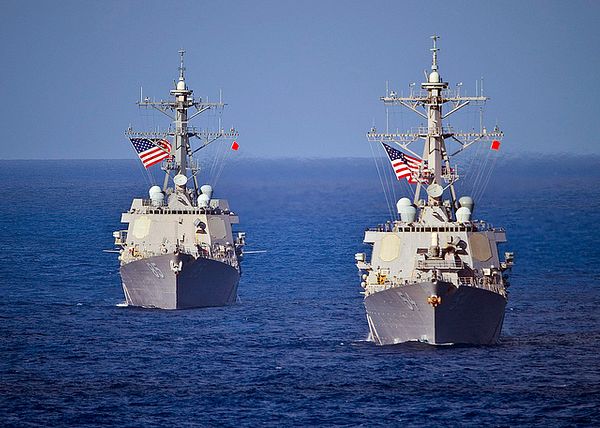By Rohit Muthiah
Abstract
A Chinese invasion of Taiwan is looking more and more possible with frequent reports of mishaps relating to Taiwan. In this article, I will seek to show what such an event would entail and what it means for India.
In 1949, the Chinese Communist Party (CCP) under the helm of Mao Zedong won a landslide victory in China, following which leaders of the opposition Kuomintang (KMT) fled to the neighbouring Island of Taiwan and set up their own government there. The CCP, however, has always claimed Taiwan to be a part of China. In the recent past, China has become more vocal and aggressive in its stance on Taiwan. It exerts considerable diplomatic and economic injunction on those who side with Taiwan. The most recent example of which is Honduras, which ultimately had to sever ties with Taiwan and opened a new embassy in Beijing.
Over the course of its existence in the last 70 years, Taiwan has witnessed three crises, known as the Taiwan Straits Crisis. The possibility of a fourth one is becoming increasingly more likely with regular reports of skirmishes and China’s discontent over Taiwan. This was brought to the forefront last year, when US House Speaker, Nancy Pelosi, visited Taiwan. She was the highest-ranking US official to visit the island ever. China’s reaction was anything but soft. It simulated a full blockade, encircling Taiwan, and fired ballistic missiles over the Island. A slew of embargoes on imports and exports was unleashed upon Taiwan and government departments were subject to cyberattacks. As The Diplomat stated, “the breadth and depth of Beijing’s fury brought the situation to the brink of another Taiwan Strait crisis”. More importantly, this serves as a grim reminder to the world as to what a potential Chinese invasion of Taiwan would look like.
US intelligence agencies have reported that Xi Jinping has asked his military to be ready to invade Taiwan by 2027. Some have even stated closer deadlines.
The issue of Taiwan is arguably one of the most contentious in the new age power dynamics. What happens in Taiwan is a matter of concern for everyone. At stake is the future global balance of power and the protection of advanced technologies critical to global trade. It matters to the US, Europe, India and equally to the smaller countries like Singapore who are carefully choreographing a balancing act.
At first glance, it might appear that India need not be as perturbed by a Chinese invasion of Taiwan. In fact, China being bogged down by a conflict closer to home will relieve India of border struggles in the Himalayas and would mean less competition in countries like Sri Lanka and Maldives, where India is seeking to bolster its soft power and gain more influence. However, in reality, the well-being of Taiwan is extremely crucial for India and an invasion of Taiwan would bring about an array of problems that India does not have the capacity to deal with.
Most important of all, Taiwan is the world’s 16th largest trading economy and ranks 21st in GDP.
Taiwan is the world leader in making cutting-edge semiconductors and microchips, which are needed to make everything from mobile phones to cars and fighter jets. It produces a staggering 92% of the most advanced chips. Even a tiny incursion into Taiwan would disrupt global supply chains and grind electronics production to a halt. A study by the Rhodium Group estimated that a blockade of Taiwan could instantly wipe off and result in economic losses of $2 trillion from the global economy. For context, this is roughly about 3% of the global and 50% of India’s annual GDP. This is assuming that China would only blockade Taiwan to force its surrender. A full-scale invasion would be far worse.
Next, we have seen how the invasion of Ukraine, a significantly less vital economy than Taiwan, has led to a decline in global economic growth, heightened tensions and increased energy prices. As a result, India’s projected growth has also been negatively impacted. If a similar invasion were to occur in Taiwan, the consequences for India would be far more severe.
India has major geoeconomic interests in the region. Between 2008 and 2016, in just 8 years, the value of India’s trade in the South China Sea increased by 80%. Since then, it has only grown more and more. In the event of a conflict between China and Taiwan, trading activities through the South China Sea would be severely derailed as the maritime passage to the north gets obstructed. This disruption in trade would not only affect the global economy but also key sectors of the Indian domestic economy.
We have already witnessed this during the pandemic when the automobile industry struggled with chip shortages. Taiwan is also the hub for undersea submarine cables which forms the backbone of the global internet. Any disruption to that would be a major blow to digital connectivity and the Indian IT sector stands to lose the most. The disruption of all these domestic industries could result in the loss of millions of jobs in India.
Suppose sanctions are imposed by the West on trade activities with China as it did in Ukraine, the ensuing consequences for India would be unimaginable. All economic activity with Japan and South Korea would be cut off as ships would no longer be able to pass through the Taiwan Straits. Nearly $200 billion in goods trade would be disrupted. The global financing environment would become very harsh and access to trade finance would be nearly impossible. Fortunately, this is rather unlikely to happen given how enmeshed the West is with China.
Lastly, the geopolitical narrative of a potential Chinese invasion of Taiwan is also stark. The issue of Taiwan is one of the main drivers of US-China tensions and in many ways a symbol for asserting their respective worldviews. That what China considers a part of its ‘territory’ still remains ‘independent’ internationally is a matter of great worry and insecurity for the Chinese leadership. Having control over Taiwan would really affirm China’s position in wanting to become a dominant power. If China is successful in taking Taiwan, its military might will increase multifold. It can disrupt trade flows and can fundamentally alter the nature of the region and the world at large.
On the other hand, ensuring the free and democratic functioning of Taiwan is central to the US in maintaining its status quo and standing up in the face of a rising China. Making sure Taiwan remains independent would uphold America’s image as the ‘defender of freedom and democracy across the world’. Taiwan can be seen as the poster child of the US-China great power rivalry. It tests the reputation of the US and its allies in upholding freedom.
Juggling with China and trying to find its own footing in the Indo-Pacific region, India too is unfortunately caught up in this precarious situation. What is not India’s problem, has become India’s problem.
It is abundantly clear why an Invasion of Taiwan is of great concern to India. Being the epicentre of the global semiconductor industry, cutting the island off would result in drastic consequences.
Hence, free and smooth access to Taiwan is imperative. It is very much in the interests of India to ensure that there is peace and stability in the Taiwan Straits. What this means is that India needs to come up with a strategy for dealing with Taiwan. And it needs to do so quickly.
About the Author
Rohit Muthiah is a first-year student at Ashoka University, pursuing a degree in Economics and Finance.
Image Source: https://thediplomat.com/2018/10/2-us-warships-transit-taiwan-strait/

